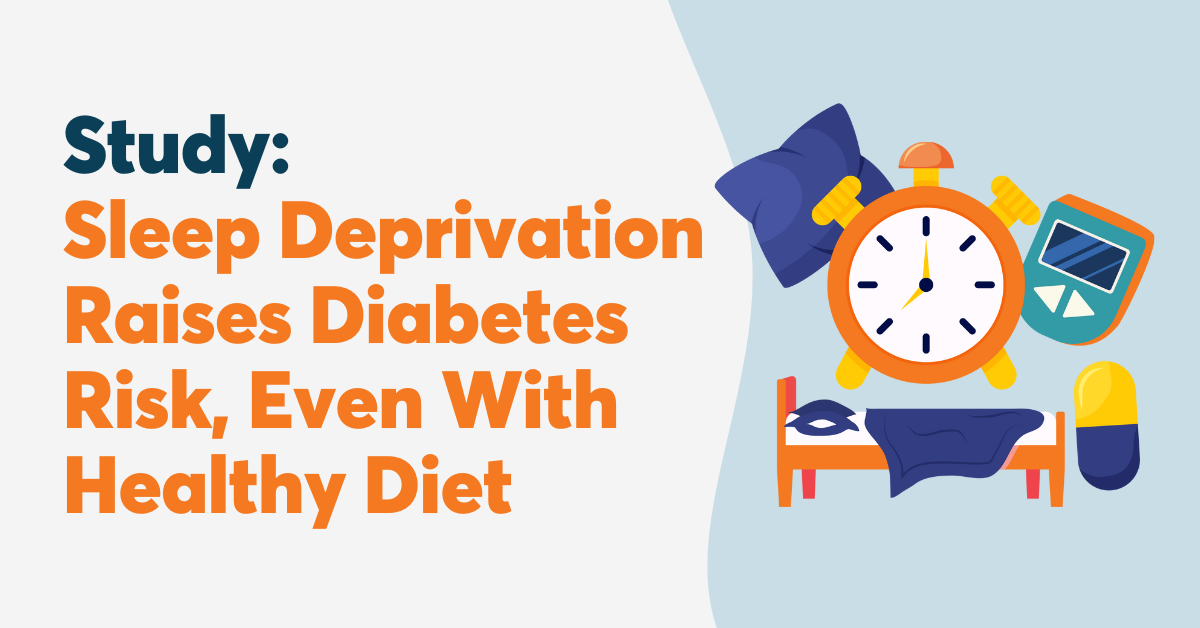Recent research reveals a link between sleep deprivation and an increased risk of type 2 diabetes. With millions of Americans getting less than the recommended seven to eight hours of sleep per night, employers play a pivotal role in addressing this health issue within their workforce.
Pressed for time? Here’s a quick summary…
- Sleep & diabetes: Sleep deprivation heightens insulin resistance, a precursor to type 2 diabetes, which cannot be fully counteracted by a healthy diet.
- ROI of sleep support at work: Investing in sleep-supportive initiatives can reduce healthcare costs, increase productivity, and boost employee engagement and retention.
- Education & support: Host educational workshops and implement stress management initiatives to empower employees with the knowledge and resources to adopt healthy sleep habits.
Sleep Study Findings
A study by UK Biobank, involving over 247,000 participants, highlights a link between short sleep durations—less than six hours per night—and an increased risk of developing type 2 diabetes, regardless of diet. Individuals getting five hours of sleep per night had 16% higher odds of developing diabetes, and those sleeping three to four hours raised the risk by 41%.
Sleep & Metabolic Health
The study emphasizes the crucial role of sleep in maintaining metabolic health, particularly in regulating:
- Insulin, which allows the body to use sugar for energy
- Cortisol, which regulates the body’s metabolism and stress response
Sleep deprivation disrupts the balance of these hormones, leading to increased insulin resistance, a precursor to type 2 diabetes. Even a nutritious diet rich in fruits, vegetables, and fish cannot fully offset the metabolic disruption caused by lack of sleep.
These findings urge employers to implement initiatives that improve employee sleep, lowering the risk of chronic diseases and enhancing workforce well-being.
ROI Of Sleep-Supportive Initiatives

Investing in sleep-supportive initiatives not only supports employee health but also offers a significant return on investment (ROI) for organizations.
- Reduced healthcare costs: Promoting better sleep habits can mitigate the risk of type 2 diabetes among employees, leading to a reduction in associated healthcare costs.
- Increased productivity: Sleep deprivation can result in decreased concentration, slower reaction times, and impaired judgment. Conversely, adequate sleep improves memory, decision-making, and creativity, boosting productivity and business outcomes.
- Improved employee engagement and retention: Companies that support sleep wellness demonstrate a commitment to employee well-being, fostering a culture of care that builds a more committed, satisfied, and loyal workforce. This reduces turnover and the costs associated with hiring and training.
Sleep-Supportive Wellness Strategies For Employers
Employers can adopt various strategies to promote employee sleep health, contributing to a productive workforce and positive work environment.
Host Educational Workshops

Host workshops on sleep science and hygiene, empowering employees with knowledge about the importance of sleep, tips for improving sleep quality, and its impact on health and performance. This can motivate workers to adopt healthier sleep habits.
Revise Work Policies
Implement policies that reduce stress and promote work-life balance, including:
- Flextime: Some employees are “larks,” or morning people, whose energy spikes earlier in the day. Others are “owls,” or night people, who tend to feel more alert later in the day. Implementing flextime allows employees to align their work hours with their peak points of energy, supporting individual sleep needs and maximizing performance on the clock.
- Reasonable workloads: Ensure that workloads are manageable to prevent stress and burnout.
- Work communication boundaries: Establish boundaries for communications outside of working hours, allowing employees to disconnect and get adequate rest.
Implement Stress Management Programs
Stress is a significant barrier to quality sleep. Providing stress management programs, such as meditation sessions, yoga classes, and mindfulness training, can help employees reduce stress levels and improve sleep.
Provide Nap Rooms

If space and resources allow, create wellness rooms, including designated nap rooms, for short rest periods. A brief nap of 20-30 minutes can boost alertness, improve mood, and enhance performance without interfering with nighttime sleep.
Offer Wellness Stipend
Offer a wellness stipend that allows employees to purchase sleep aids, such as blackout curtains, white noise machines, or high-quality pillows, enhancing their sleep environment and the quality of their rest.
Sleep Challenges
A sleep challenge can motivate employees to prioritize sleep in a fun, engaging way. Through educational activities, employees can learn about the importance of sleep and apply practical strategies to foster better habits.











